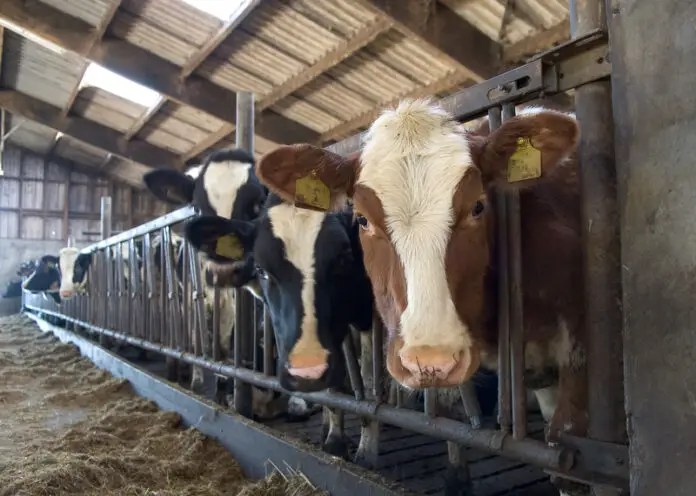Chinese scientists announced that they have successfully cloned three cows with the capability to produce a significantly higher amount of milk than average cows, according to reports by Chinese state media.
The new cloning methods unveiled on Tuesday, January 31, are considered a breakthrough for the country’s dairy industry, and are expected to reduce China’s considerably heavy reliance on imported cow breeds.
The scientists behind the project are from the Northwest University of Agricultural and Forestry Science and Technology. They witnessed the three calves being born in China’s Ningxia region weeks before the Lunar New Year.
The calves were cloned from one of the most productive cow breeds in the world, the Holstein Friesian breed from the Netherlands, capable of producing 100 tons of milk in their lifetimes.
The cows can produce 18 tons of milk yearly, which according to the Department of Agriculture, is over 1.7 times more than the amount of milk that an average cow in the US produced in 2021.
According to the Chinese state-run news outlet Technology Daily, the scientists used ear cells of the Holstein Friesian breed to make 120 cloned embryos as part of the first batch of the clones, nicknamed “super cows.”
The project’s lead scientist, Jin Yaping, said that they placed 42% of the cloned embryos in surrogate cows.
Speaking to the Global Times, Yaping said three of the impregnated cows gave birth to cloned calves. He said it was a “breakthrough” for the country as it would allow China to take the best breeds of cows and preserve them, a method that would prove economically fruitful.
The first of the super cows was born on December 30 via C-section because of its large size of 120 pounds. Two other calves were born before the Lunar New Year on January 23.
Currently, only five in 10,000 cows can produce 100 tons of milk in a lifespan in China, with most of the dairy cows in the country being imported from other countries.
It is common for farmers to breed their cows with clones to add favorable traits like disease resistance and higher milk production.
Yaping told the outlet that they plan to build up a herd of over a thousand super cows in two or three years, reducing the country’s reliance on imported dairy cows.

